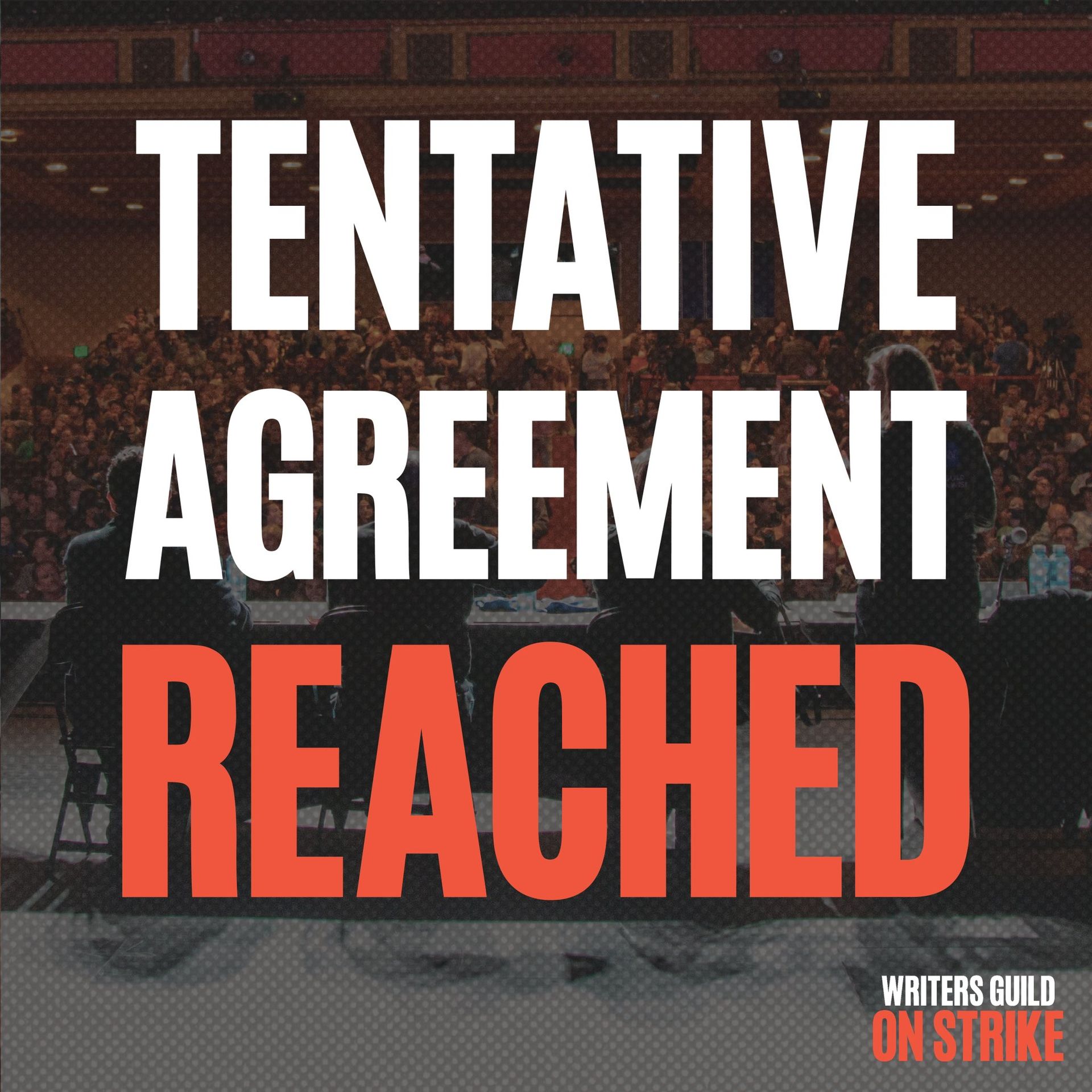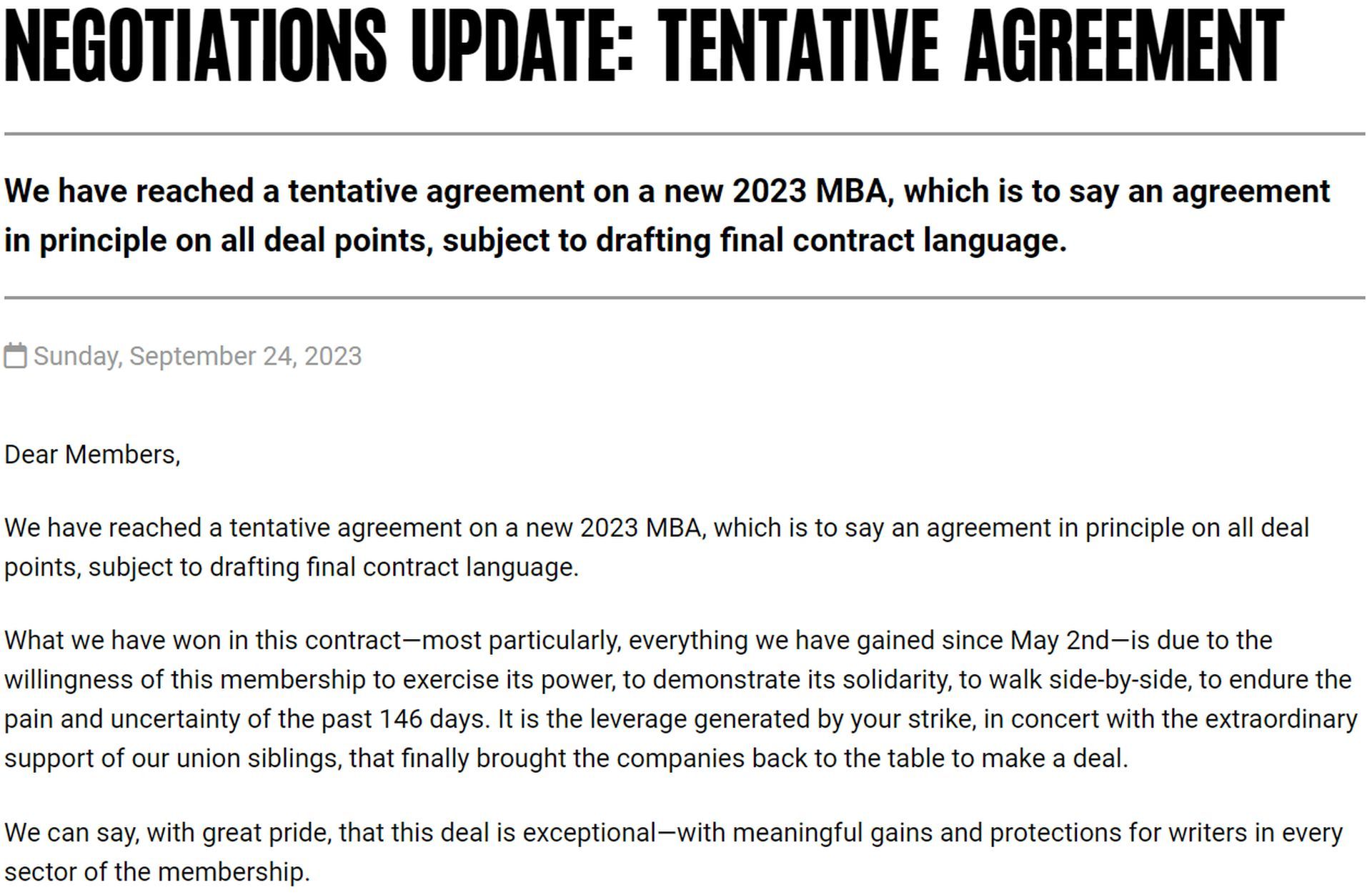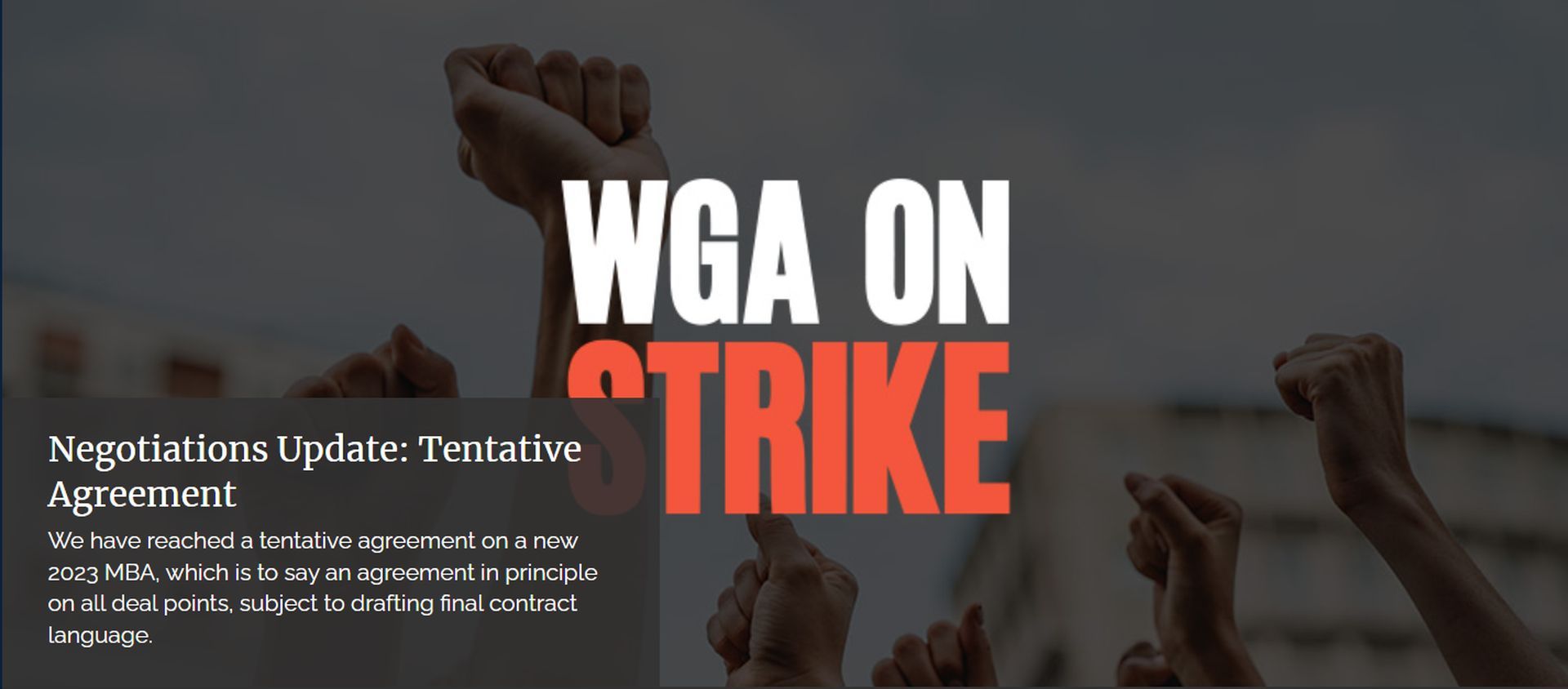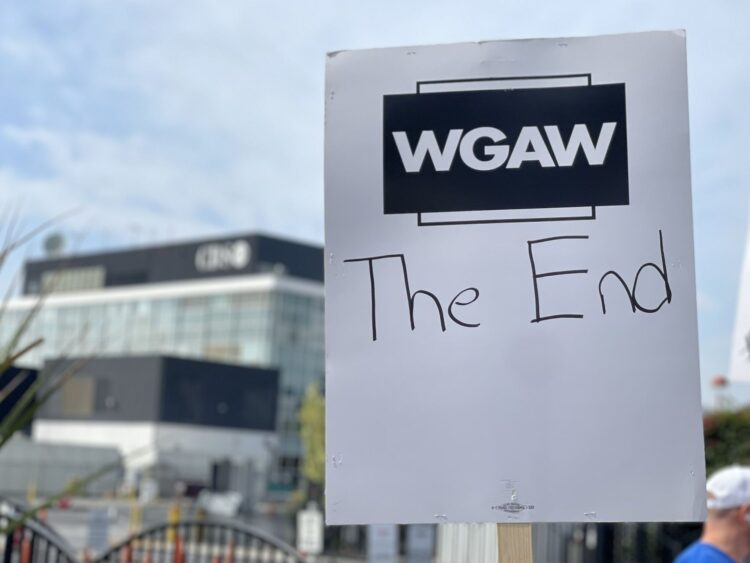After a grueling 146 days, the Writers Guild of America (WGA) has announced a “tentative agreement” with major Hollywood studios, signaling a potential end to the prolonged strike. This development holds significant implications not only for the writers but also for the broader entertainment industry.
With this agreement, the studios can now redirect their efforts toward negotiating with the actors’ union, potentially bringing a definitive conclusion to the Hollywood labor stoppage.

The agreement in detail
Following five days of intense negotiations, the WGA disclosed that a tentative agreement had been reached with the Alliance of Motion Picture and Television Producers (AMPTP). However, it’s important to note that this agreement is still “subject to drafting final contract language.” As a result, union members are advised not to resume work until expressly authorized by the Guild. While the strike remains in effect until further notice, the WGA has decided to suspend picketing, urging writers to join SAG-AFTRA picket lines in solidarity.
The WGA expressed gratitude towards its members for their unwavering patience and determination throughout the process. The statement emphasized that it was the collective strength of the strike, combined with the invaluable support from fellow unions, that ultimately compelled the companies to return to negotiations and forge a deal.
SAG-AFTRA’s response
SAG-AFTRA, the union representing striking actors, extended their congratulations to the WGA for reaching a tentative agreement with the AMPTP. However, they made it clear that their own strike in the TV/Theatrical contract remains ongoing. The union continues to call on studio and streamer CEOs, as well as the AMPTP, to return to the bargaining table and secure a fair deal for their members.
California Governor Gavin Newsom acknowledged the vital role played by the state’s world-class writers in shaping the entertainment industry. He emphasized the significance of addressing the genuine concerns of workers, who faced existential threats to their careers and livelihoods during the prolonged strike. Newsom expressed his gratitude that both sides have come together to reach an agreement that promises benefits for all parties involved, revitalizing a cornerstone of California’s economy.

The industry impact
The dual strikes by writers and actors have had far-reaching consequences on the entertainment industry. Virtually all production of scripted content ground to a halt when the actors’ union joined the strike in July. This led to a domino effect of production delays for both television and film; late-night talk shows have remained on hiatus since the onset of the writers’ strike in May. Furthermore, some studios had to postpone the release of already-completed films, exemplified by Warner Bros.’ decision regarding the “Dune” sequel.
The financial toll
In addition to disruptions in production, the strike has also taken a substantial financial toll on media giants. Initially, it was believed that the production shutdown would lead to savings. However, recent weeks have seen media CEOs disclose the true extent of the strike’s economic impact. Warner Bros. estimated that the strike could wipe out up to $500 million in earnings for the year.

Looking ahead
While the tentative agreement marks a significant milestone, it still awaits ratification by WGA members through a vote before it can be officially finalized. This critical step will determine the ultimate outcome of this historic strike and set the stage for the future of the entertainment industry.
Meanwhile, Hollywood is struggling on yet another front. Recently, the expanding use of AI in the field has sparked a significant backlash. Check out how the AI replica proposal started a strike in Hollywood.
Featured image credit: Twitter





